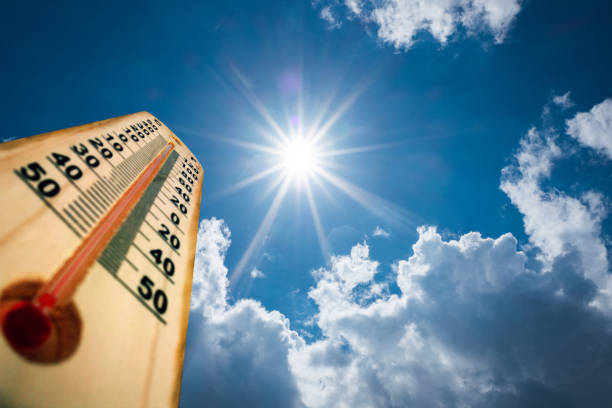It was yet another extra-hot day in Barbados. Very hot. The sweltering temperatures continue to grip the island, interspersed only by fleeting rain showers that offer temporary relief. As the world battles an onslaught of climate-related catastrophes, from raging wildfires to devastating floods, we find ourselves navigating the relentless grip of a warming planet.
Mercifully, the cooling touch of the northeast trade winds offers small mercies amidst the turmoil. We watch with a mix of empathy and gratitude as other parts of the world grapple with unprecedented wildfires, scorching heat waves and overwhelming floods. However, as the thermometer climbs, the pressing reality is that no one, nowhere, is immune to the sweeping impacts of climate change.
The latest scientific assessments leave little room for doubt – these disasters are the direct result of a warming world. The European Union’s Copernicus Climate Change Service (C3S) reports that July took the crown as the hottest month ever recorded globally, with Arctic temperatures soaring to alarming heights. Even the slight edge by which this record was broken is an urgent reminder that every fraction of a degree matters. According to C3S, July was the warmest month ever recorded worldwide. Scientists reported that scorching heatwaves saw records tumble across Europe last month, with unusually high temperatures within the Arctic Circle as well.
Globally, July 2019 was marginally warmer – by 0.04 degrees Celsius (0.072 degrees Fahrenheit) – than the previous hottest month on record, July 2016.
Against this backdrop, forecasters have warned that we could experience more storms this hurricane season than initially expected. On August 10, the National Oceanic and Atmospheric Administration (NOAA) increased its predictions for an above-normal season from 30 to 60 per cent. Predictions are now calling for 14 to 21 named storms, of which 6 to 11 will become hurricanes and out of that 6 to 11, the possibility of two to five major hurricanes.
As we navigate this new normal, we must not confine our preparations solely to the next hurricane. The winds of change blow stronger and hotter, affecting livelihoods and education alike. From toiling farmers to sweltering students, the impact of relentless heat touches every corner of society. Air conditioning remains a luxury in many classrooms and homes, and the elderly and young, our most vulnerable, stand at the forefront of this battle.
The meteorological authorities have adjusted their predictions for the hurricane season, driven by the unusual warmth of the Atlantic waters. With the evolving forecasts in mind, Brian Murray, Deputy Director of the Barbados Meteorological Services emphasized the ongoing need for preparedness among residents, as we approach the peak of the season from late August to early September.
Murray elaborated that the heightened predictions stem from the record-breaking warmth of the Atlantic sea surface. He noted that these elevated temperatures are poised to counteract the constraining atmospheric conditions linked to the current El Niño phenomenon.
While El Niño is a factor, its effects are taking their time to manifest, he noted that climate experts predict that these impacts might not significantly influence the latter part of the hurricane season.
Highlighting the characteristic elements of an El Niño event, Murray pointed out the substantial disparities in wind direction and speed across various atmospheric levels – a phenomenon known as wind shear.
However, the exceptionally warm waters of the Tropical Atlantic will usher in a different pattern. This will translate to heightened activity in tropical wave formation, coupled with an increased prevalence of low-level centres emerging in the monsoon trough, a low-pressure zone that forms over the tropics during the rainy season.
Yet, these predictions are not just about hurricanes – they symbolize a broader shift in our world’s climate. The scorching sunsets and parched landscapes demand our attention and action.
So, as we brace for more storms and hotter days, let’s not forget the bigger picture. It’s not just about weathering the storm; it’s about adapting to a world that’s rapidly changing. The new normal isn’t a mere inconvenience; it’s a call to arms. It’s a plea to recalibrate our strategies, from agriculture to infrastructure, from education to healthcare, to ensure resilience against the mounting challenges of a shifting climate.
Ultimately, while we yearn for those cooling trade winds, it’s the refreshing breeze of collective response that will determine if the winds of change blow us off course or push us toward a sustainable horizon. Our island’s resilience has always been tested, but its strength lies in its ability to adapt and thrive in the face of adversity. Let’s remember, the sunburnt challenges we face today are the catalysts for a better, more resilient tomorrow.




